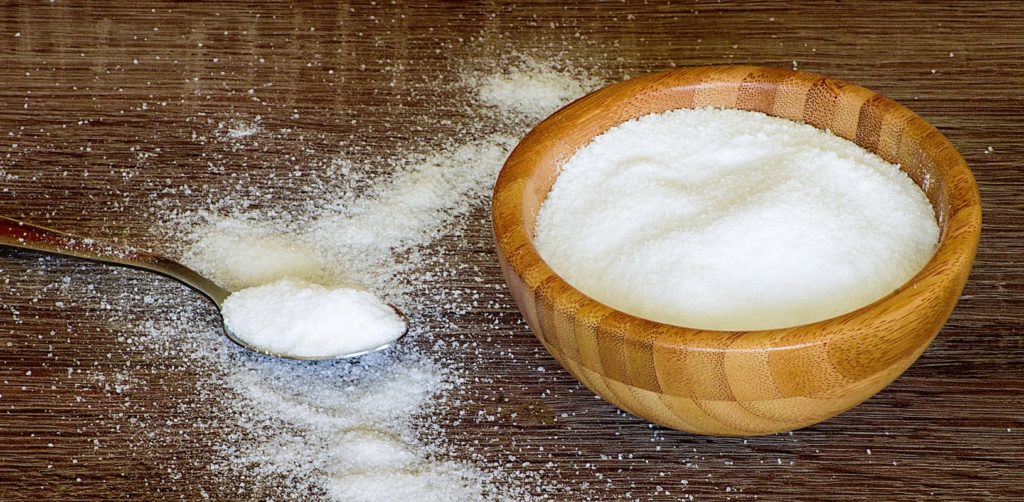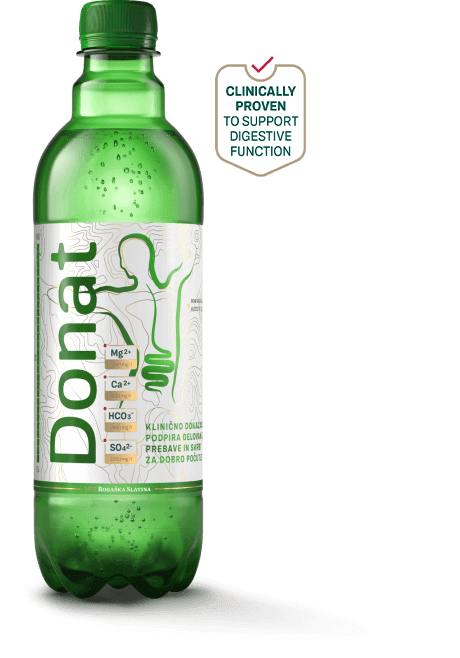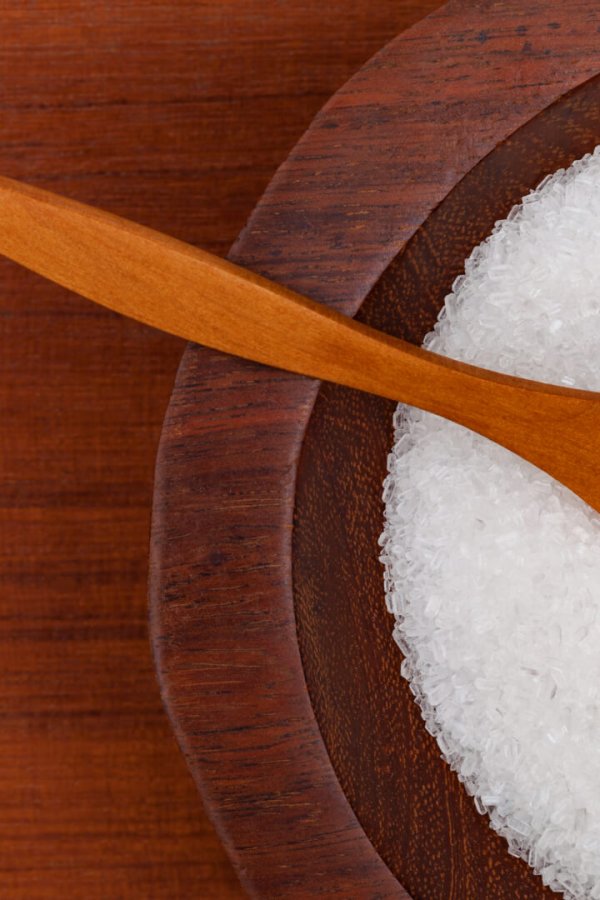All the fans of turning everyday substances into effective natural remedies that boost one’s health and spirits … Here’s something just for you! Why? Because this article is your go-to guide for a substance that, along with several other health benefits, effectively treats slow digestion and constipation. Can you guess what we have in mind if we tell you that this magical thing can also be described by a chemical formula? Well, if your answer is Epsom salt, don’t celebrate before reading how magnesium sulphate can be your best bet for getting your digestion back on track.

Go Natural a.k.a. Why Take Epsom Salt for Constipation
Have you been caught up in the fast-paced life where you often don’t have time for a healthy, balanced meal? If your daily life often includes having fast food (which is, of course, full of fat, sugar, and salt), but you frequently forget to drink a glass of water and you’re having a hard time talking yourself into doing some sport activity, your digestive system surely does not work as fast as it should. And if you belong to the worst diet and lifestyle offenders, you might already feel the consequences in the form of bloating and constipation while incessant headaches and reflux also aren’t uncommon.
Unhealthy diet and a lack of exercise slow down our digestion and lead to constipation.
However, constipation does not only hit those who can’t stick to healthy eating habits. It is also a big issue for pregnant women and those who are regularly exposed to stress. But no matter the cause – what all the victims of unsuccessful toilet sessions long for is a fast and painless constipation relief. But why doesn’t everyone just grab an over-the-counter laxative and forget about their issues …?
The answer lies in the fact that such remedies can have many different effects, of which not all are, let’s say, exactly pleasant. Some can be particularly aggressive, causing stomach cramps and, if used over a longer time period, even chronic constipation or a lazy bowel syndrome.
On the other hand, Epsom salt in moderate quantities has no side effects and can only be harmful to those who truly exaggerate with its use. Therefore, it’s a particularly beneficial substance for slow digestion or constipation relief while it’s also great for colon and liver cleansing.
Let’s take a closer look at why you should take Epsom salt for constipation relief.
What is Epsom Salt?
Epsom salt might look a lot like table salt, but don’t let the similarity in names fool you. In the case of Epsom salt, we’re actually talking of magnesium sulphate, whose chemical structure differs considerably from that of natrium chloride. Its colourless crystals were originally discovered centuries ago in an English town of Epsom, which is how this compound got its name.
Taking Epsom salt for constipation relief has been a common practice for a long time as magnesium sulphate is known for its laxative effect and represents a valuable source for magnesium for those who lack it. Actually, it’s magnesium that makes this substance so beneficial for our health.
Magnesium helps us relax and fall asleep faster while it also relaxes the muscles after a gruelling training session and prevents cramps. What is more, Epsom salt baths are great for pain relief and reduce swelling. Cosmetics fans will also tell you that magnesium sulphate crystals do a great job of removing dead skin cells and are therefore a welcome addition to face masks, reducing scars and contributing to a smoother skin. And if one needs to remove a foreign object from their skin, Epsom salt is here to help too!
However, those who would appreciate more frequent toilet visits will mostly use Epsom salt for constipation relief. And rightfully so. Magnesium sulphate belongs to osmotic laxatives, which are effective in speeding up digestion without causing damage to the body. Therefore it can be used by adults as well as children from the age of six.
Epsom salt or magnesium sulphate relaxes and treats the body in a completely natural way, cleansing the gastrointestinal tract, boosting digestion and providing the organism with magnesium
Where to buy bitter salt?
Magical white crystals of bitter salt are available in pharmacies, supermarkets, and drugstores. You will often find it in the laxative section or among products for personal hygiene. If you want to use it in case of indigestion, do not reach for Epsom salt with essential oils (these products are suitable for baths), but take the one without any additives. Many online retailers also offer magnesium sulphate in the form of crystals or a soap, balms, or oils.
Epsom Salt and Water for Constipation – How Does It Work?
Taking epsom salt for constipation salt is an excellent way of speeding up our gut as magnesium sulphate absorbs water from the intestinal wall cells, thus causing the volume of the intestinal content to increase from 3 to 5 times and creating pressure on the intestinal wall. This pressure causes the gut to push the waste out of the body.
As magnesium sulphate increases the water content in the intestines, it also softens up food waste, thereby enabling our bodies to push it out faster.
How to Drink Epsom Salt for Constipation Relief
To treat slow digestion or constipation, Epsom salt is normally ingested diluted in water. And before you ask, let us come clean – it does not taste pleasant. But don’t despair! Even a few drops of lemon can make the concoction a lot more bearable, especially for the youngsters.
If mixing epsom salt and water for constipation relief, dilute two to four teaspoons of magnesium sulphate in dvo deciliters of tap water. For children under the age of 12, reduce the amount of Epsom salt to between one and two teaspoons but keep the amount of water the same. Drink immediately.
If there are no results, you can drink another glass of water with Epsom salt, but only 4 hours after having the first glas. However, don’t go for the third glass as two glasses daily are the maximum safest amount. If you cross the limit, the side effect can include nausea or even bloating.
Drinking Epsom salt and water for constipation relief has no side effects, but only if we don’t exceed the recommended daily amount.
And how much Epsom salt does one have to drink for constipation relief? Well, we recommend that your magnesium sulphate therapy does not last longer than one week. If there are no results, you want to first visit a doctor and then – should the GP agree – continue with taking Epsom salt.
And despite the fact that it normally causes no side effects, Epsom salt is not an appropriate remedy for anyone. If you suffer from kidney-related chronic diseases, chronic stomach pain or other nausea as well as if you’ve been prescribed a low-magnesium diet, do consult your doctor before even thinking about magnesium sulphate.
Oh, and another valuable piece of info: Usually, the results of taking Epsom salt for constipation can show as quickly as a few hours after ingesting it. If you’re lucky, you’ll be running for the toilet almost immediately after emptying the glass of water.
Magnesium Sulphate is the Main Ingredient of the Natural Mineral Water Donat
If you want to use Epsom salt for constipation relief or even just to give your digestion a little boost, there is a very simple way to do it – by drinking Donat natural mineral water! Magnesium sulphate is actually the main ingredient of Donat and its secret to speeding up the digestive process.
It is for this reason that experts treat Donat as a sulphate-based laxative. Along with magnesium sulphate, it also contains sodium sulphate, which also helps to speed up the gut while also cleansing the intestinal tract.
Clinical tests prove that Donat has a beneficial effect on our digestion.
Donat is also an excellent source of magnesium. Just imagine that 1 litre of this natural mineral water can provide your organism with more than 1000 mg of this vitally important element. What is more, magnesium takes part in more than 300 biochemical processes in the body and is crucial for a healthy heartbeat, strong bones and proper gut activity, which makes Donat even more important for those who don’t get enough magnesium through their diet.

Donat is Clinically Proven to Boost the Digestive System
It has been clinically proven that drinking Donat regulates digestion due to the presence of bitter salt in its natural form. It is recommended to drink around 0,5 l on a daily basis. Optimally, we should drink 3 dl in the morning on an empty stomach and 1 dl before sleeping.
Would you like to find out more about how to properly consume Donat to help you regulate your digestion or even alleviate some other health problems? Read our instructions for consummation!
However, as there are different levels of constipation, the exact daily amount of Donat also depends on the individual’s specific needs. To get just the right amount of Magnesium (prescribed by your doctor depending on your issues), you can also use our Donat Moments app, which allows you to choose one of the available drinking regimes and then makes sure you never forget to stick to them. It’s completely free and available for iOS as well as Android users.
Beat Constipation With Epsom Salt and a Healthy Lifestyle
Although drinking water and Epsom salt for constipation is a wonderful strategy for speeding up your gut, the best long-term solution is a healthier lifestyle.
The best long-term solution for constipation is a healthy lifestyle.
This includes a more balanced diet with less fatty foods as well as cutting down on sugar and salt while increasing the amount of fibre to at least 20 g daily (If you’re interested in healthy habits that also help you overcome several digestion issues, make sure to also learn how to put an end to slow digestion and read about The best ways to deal with constipation).
Fibre is crucial for increasing the volume of waste, enabling it to pass through our intestines with ease. To make this even easier, you need enough water and regular exercise. Remember – move your body and your gut will move with it. But be careful and increase the amounts of fibre in your food gradually. This way, you’ll avoid cramps, pain or even bloating and gas. And if it’s too late for this warning, let us help you with the article on Easy ways to reduce abdominal bloating.
Frequently Asked Questions
1. What is bitter salt?
Besides the similarities in their name and the way they look, bitter salt has no other connections with the regular, table salt due to its entirely different chemical composition. It is a compound of magnesium, sulfur, and oxygen, also known as magnesium sulphate or Epsom salt. Among other things, this salt is known for its detox and laxative effects, and it is recommended for people suffering from lack of magnesium.
2. What are the medicinal benefits of bitter salt?
Bitter salt works against stress, helps in regeneration of muscles after a strenuous workout, alleviates pain and reduces swellings. It also removes dead skin cells, and it helps in removing foreign matters from your body. It is also known for its laxative effect.
3. How does bitter salt work against constipation?
Bitter salt belongs to the group of so-called osmotic laxatives, which means that it accelerates digestion based on osmosis. It increases the amount of water in intestines, and thereby increases the volume of the intestine content and creates a pressure necessary for the bowel movement, i.e. peristalsis.
4. How to consume bitter salt?
Epsom salt is usually melted in a glass of water. Adults are recommended to take two to four teaspoons in 2 dl of liquid, while children under 12 should take 1 – 2 teaspoons, also in 2 dl of water. Since the taste is quite bitter, we recommend adding a few drops of lemon, mint leaves, etc.
5. Is bitter salt one of the ingredients of Donat natural mineral water?
Magnesium sulphate is the main component of Donat natural mineral water. Bitter salt is not just its main active ingredient, but also the secret of its success in regulation of digestion in an efficient, but also harmless way.
Choose chapter:






